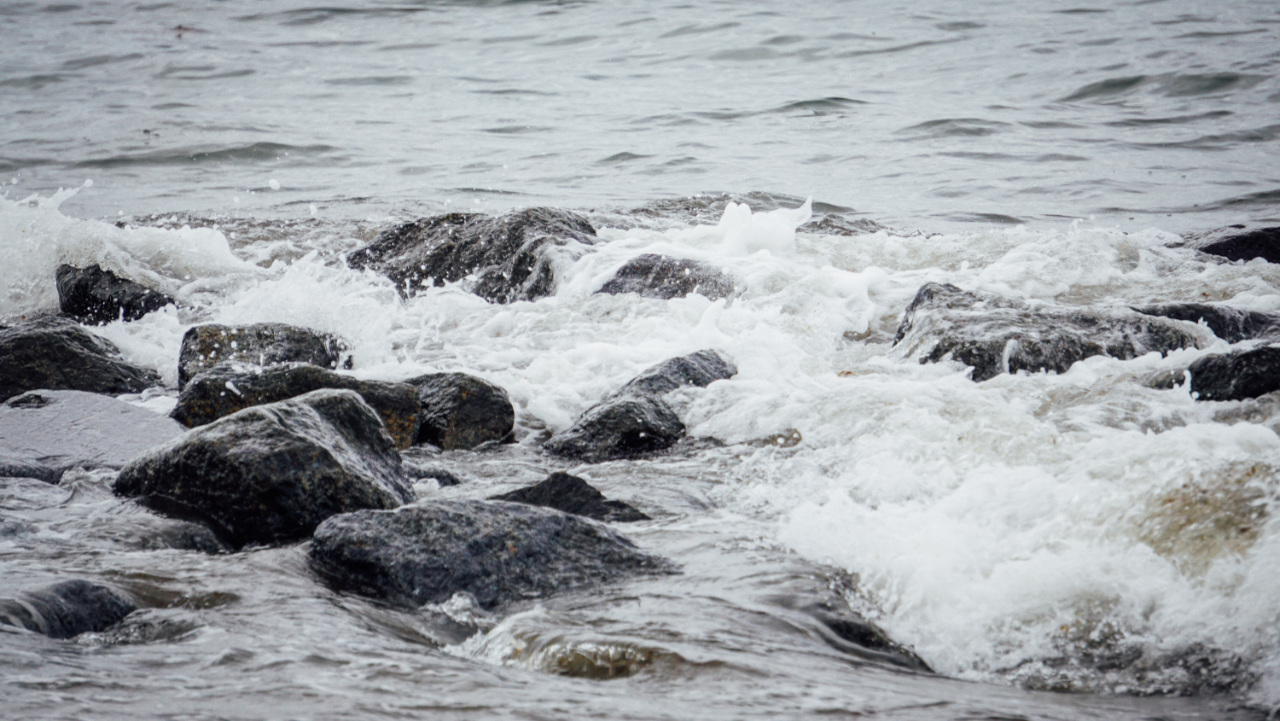Sea-level rise predictions
The number of costal floods in the Baltic Sea basin will increase within the next 30 years. What’s more, in a 100-year perspective the historic center of Gdańsk may disappear under water. The Interdisciplinary Advisory Team for the Climate Crisis to the President of the Polish Academy of Sciences issued a communiqué on sea-level rise.

The adverse effects of climate change seem to be imminent when the global temperatures and the sea level continue to rise at the current rate. If we fail to reduce greenhouse gas emissions, we may soon have to come up with creative solutions to deal not only with coastal floods but also land loss.
To prepare for sea-level rise, experts call for swift actions, including:
- developing a coastal protection strategy,
- developing requirements for infrastructure planning and design,
- developing guidelines for spatial planning, concerning coastal protection measures, and land use changes for flood-prone areas.
Sea level observations
Since the 19th century, global mean sea level has risen by more than 20 cm. The 2019 IPCC Special Report on the Ocean and Cryosphere states that mean water level in the oceans rose by 3.6 mm per year from 2006-2015, which was 2.5 times the average rate of 1.4 mm per year throughout most of the 20th century.
Study finds that the global sea level rise began to accelerate in the 1960s. This is primarily due to increased melting of glaciers and ice sheets and to a lesser extent, thermal expansion of ocean waters and the reduction of surface water. The speed of the past decade increase is 4.8 mm per year.
Projections for Gdańsk, Żuławy and the Hel Peninsula
Forecasts of sea level rise depend on the amount of future greenhouse gas emissions. The authors of the IPCC report predict that the rate of average world sea level rise in 2100 will reach 15 mm per year, and in the 22nd century it will exceed a few centimeters per year.
The scientists also provide predictions that apply to the Polish coast. Preliminary results indicate the lack of vertical movements of the bottom for the western ends of the Polish coast and its central part, as well as a decrease of about 1 mm per year of the coast in the Gulf of Gdańsk and even 2 mm per year in the region of Żuławy. This may accelerate the increase in the relative mean sea level in this region by an additional approx. 10-20 cm per century, resulting in an increase in the risks associated with the rise in sea level and the spread of these threats to ever larger areas, including the historic part of Gdańsk, Żuławy and the Hel Peninsula .
Extreme events in the Baltic Sea
Extreme events that have so far occurred once per century now they may occur at least once per year at many locations. In the next 30 years, storm surges will affect Central Europe and the Baltic Sea regions several times more frequently than in the past.
About the team
The Interdisciplinary Advisory Team for the Climate Crisis to the President of the Polish Academy of Sciences is chaired by Prof. Szymon Malinowski (University of Warsaw), with Prof. Jacek Piskozub (PAS Institute of Oceanology) acting as deputy chair, and Dr. Iwona Wagner (European Regional Center for Ecohydrology of the Polish Academy of Sciences, University of Lodz). Other members are: Prof. Irena Wrońska (Medical University of Lublin), Prof. Krzysztof Kwiatek (National Veterinary Research Institute), Dr. Adam Habuda (PAS Institute of Law Studies), Dr. Krzysztof Niedziałkowski (PAS Institute of Philosophy and Sociology), Dr. Agata Goździk (PAS Institute of Geophysics), Prof. Tomasz Okruszko (Warsaw University of Life Sciences), Prof. Zbigniew Kundzewicz (PAS Institute of Agricultural and Forest Environment), Dr. Andrzej Jagodziński (PAS Institute of Dendrology), Dr. Anna Januchta-Szostak (Poznań University of Technology), Prof. Jan Kozłowski (Jagiellonian University), Prof. Jan Kiciński (PAS Institute of Fluid-Flow Machinery), Dr. Aleksandra Kardaś (University of Warsaw), Dr. Justyna Orłowska (Ministry of Climate and Environment), Dr. Mateusz Strzelecki (Polish Young Academy).
The following experts were also involved in the preparation of the communiqué:
Dr. Jakub Małecki (Adam Mickiewicz University in Poznań), Prof. Małgorzata Stramska (PAS Institute of Oceanology), Prof. Jan Harff (University of Szczecin), and Prof. Mirosław Miętus (University of Gdańsk).
The full text of the communiqué is available in Polish on the PAS website.
